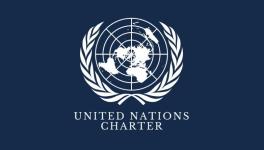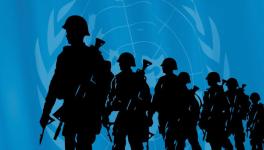Will run out of Food Stocks in Afghanistan by Month-end: Warns Senior UN Official
United Nations: The United Nations' food stockpiles in Afghanistan could run out this month and there is a critical need for $200 million to provide food to the most vulnerable, a senior UN official has warned.
Deputy Special Representative and Humanitarian Coordinator in Afghanistan Ramiz Alakbarov said that at least one-third of the conflict-torn country's population currently is “not sure that they will have a meal every day or not. This is what is going on.”
“By the end of September, the stocks which the World Food Programme has in the country will be out. We will be out of stock. We will not be able to provide those essential food items because we'll be out of stock," Alakbarov told reporters during a virtual press briefing from Kabul on Wednesday.
"For us to keep the current demand, we need at least USD 200 million only for the food sector to be able to provide food to the most vulnerable,” he said.
He noted with concern that most of those vulnerable are children and more than half of the children in the country under the age of five are suffering from extreme malnutrition and "those children will not get food.”
He emphasised that the food insecurity is “very apparent" throughout the entire territory of the country and more than 600,000 people are displaced as a result of the conflict.
Afghanistan fell to the Taliban in mid-August as the US rushed to withdraw its military presence from the country after 20 years.
The Taliban now must govern a nation that relies heavily on international aid and is in the midst of a worsening economic crisis.
As the last US troops left Afghanistan by the August 31 deadline, UN Secretary-General Antonio Guterres expressed “grave concern" at the deepening humanitarian and economic crisis in the country and the threat of basic services collapsing completely “on the day Afghanistan enters a new phase.”
Warning that a “humanitarian catastrophe looms”, Guterres said almost half of the population of Afghanistan – 18 million people – need humanitarian assistance to survive.
"One in three Afghans do not know where their next meal will come from. More than half of all children under five are expected to become acutely malnourished in the next year. People are losing access to basic goods and services every day.”
The UN chief urged all member states to “dig deep" for the people of Afghanistan in their “darkest hour" of need.
“I urge them to provide timely, flexible and comprehensive funding. I urge them to help ensure humanitarian workers have the funding, access, and legal safeguards they need to stay and deliver,” the UN chief said.
Guterres said now more than ever, Afghan children, women and men need the support and solidarity of the international community and emphasized that the humanitarian system’s commitment to stay and deliver will not waver.
“Already this year, we have delivered aid to eight million people. In the last fortnight, we delivered food to 80,000 people and relief packages to thousands of displaced families. Yesterday we airlifted 12.5 metric tons of medical supplies into the country.”
The UN chief noted that amid a severe drought and with harsh winter conditions on the horizon, extra food, shelter and health supplies must be urgently fast-tracked into the country.
“I call on all parties to facilitate safe and unimpeded humanitarian access for life-saving and life-sustaining supplies, as well as for all humanitarian workers – men and women,” he said.
Alakbarov said that more than half of the Afghan children “do not know that they will have a meal tonight or not. And that's the reality of the situation we are facing on the grounds. There is a quite considerable and acute malnutrition and access to food every day is scarce,” he said.
Medicines are also in short supply and there are deep concerns over limitations in the ability to pay salaries to teachers and social sector workers as there is a lack of budgetary provisions to cover these, he said.
In recent days, the UN has flown medical supplies into the Mazar-i-Sharif airport in northern Afghanistan, while some 600 metric tonnes of food were delivered by trucks coming over the border from Pakistan.
UN teams have also been providing communities with access to water and sanitation, as well as protection services, including to some 800 children at Kabul airport.
“I would say that we remain determined to deliver the essential services to the people of Afghanistan, we remain here in solidarity to those who need our assistance. Unfortunately, the levels of funding provided to the United Nations to respond to those needs have not been commensurate,” Alakbarov said.
The contributions for United Nations to respond to the humanitarian crisis have not exceeded $400 million this year against the ask of $1.3 billion.
“As this situation unfolds, it is extremely important that we prevent Afghanistan from descending into a further humanitarian catastrophe by taking the necessary steps to provide essential items which this country needs right now,” he said.
Alakbarov said although the Taliban have provided “every assurance”, humanitarian access varies from province to province due to several issues, including the degree to which women are being allowed to keep working.
“We continue to advocate very strongly with the Taliban, first of all for respect to the principles of gender equality and participation so that women can return to work and provide the required assistance. And that we be provided with any necessary facilitation to do this work,” he said.
Get the latest reports & analysis with people's perspective on Protests, movements & deep analytical videos, discussions of the current affairs in your Telegram app. Subscribe to NewsClick's Telegram channel & get Real-Time updates on stories, as they get published on our website.
























